Published Feb 26, 2021
Star Trek Stands With Our AAPI Community
And we ask you to stand with us as well, against violence, against hate, and against racism.
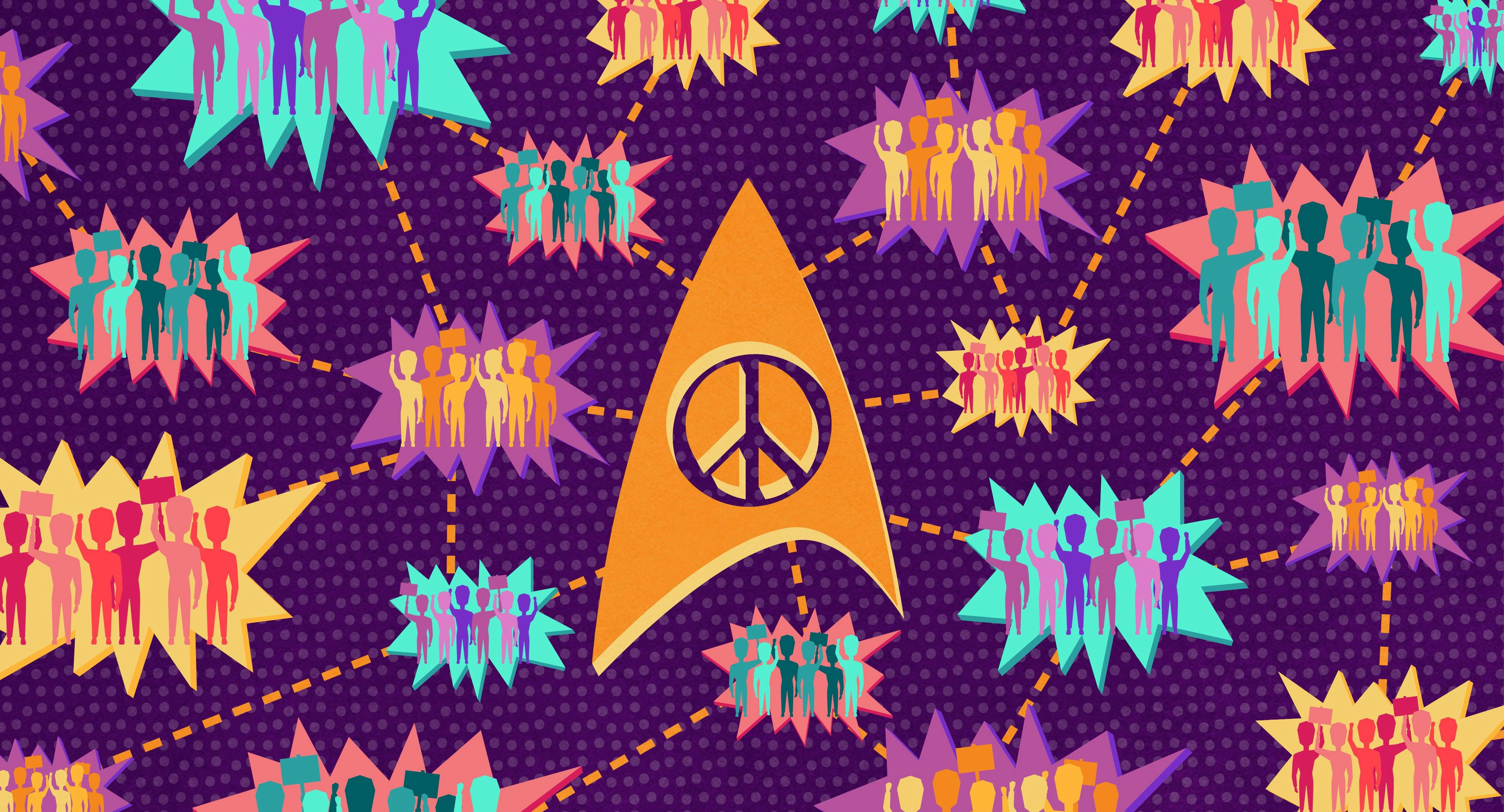
StarTrek.com
At its best, science fiction holds a mirror up to our society. In some cases, this helps us see ourselves the way we want to be seen, shepherding both progress and normalization towards a just and equitable society. For Asian Americans and Pacific Islanders (AAPIs), there may be no greater example of this than the barrier-breaking character of Hikaru Sulu in Star Trek: The Original Series, as played by Japanese-American actor George Takei.
However, in other cases, this reflection can uncover harsher truths. Across the entire Star Trek franchise, examples stand out such as Star Trek VI: The Undiscovered Country and Star Trek: The Next Generation’s “The Drumhead.” But even when science fiction reveals this ugliness, this lens of storytelling can lead towards understanding and ultimately healing.
Today, Star Trek can once again be a mirror for such a cultural crisis, reflecting on handling conflict caused by generational trauma — specifically, healing the recent spike in violence against the AAPI community.
The history of anti-AAPI violence is long and complex, and though current circumstances have clearly heightened it. COVID-19 has created unfathomable grief in our world, a globe-spanning combination of desperation and loss. In times of great anger and fear, human nature looks to blame, to find an outlet for those feelings. Over the course of 2020, rhetoric has fanned these flames away from constructive solutions and accountability while directing blame towards the AAPI community.
Star Trek Day 2020 | George Takei Talks Activism And Internment Camp Experiences
These swells of misplaced anger have resulted in slurs, disinformation, vandalism, and growing violence, particularly towards senior AAPI citizens. News outlets have shown shocking videos, raising tensions and fear in the AAPI community. Rather than bring people together, this situation has sparked debate on how to proceed, both within the AAPI community and on a greater inter-community level. While some have called for individual legal action, such an approach fails the bigger picture. Summer 2020's events demonstrated the need to address root causes of inequity and injustice affecting so many marginalized groups in America. Sidestepping this allows wounds to fester, enabling the cycle of blame and violence to return. How can we culturally move forward in a systemically healing way beyond individual incidents?
Science fiction may offer some insight in finding hope.
Star Trek: Discovery’s third season finds a fractured galaxy due to a mysterious event known as the Burn. The origin of the dilithium-destroying Burn is ultimately rooted in trauma so powerful, it cries outward to create a galaxy-wide crisis. This propagates into a generational trauma, fracturing alliances and leaving species and systems to fend for themselves. The solution, led with conviction by Michael Burnham, is to go beyond immediate concerns and dig deeper into root causes. Only then can civilizations safely connect again to repair broken bonds, while equally building a sustainable foundation so the Federation does more than just return.
It will thrive.
The real world, of course, is much more complicated and requires more than a new source of dilithium. But this allegory is worth absorbing as a society. Our country -- and really, our planet -- has faced layers of increasing trauma in recent years, with each passing month conditioning us to dread every breaking news alert. We exist with our guard up, suspicious and angry at an unending wave of injustices big and small. When stacked upon the generational trauma of racism and compounded by extreme isolation, pain easily turns into a need to blame, to lash out.
The skyrocketing number of hate crimes against Asian Americans continues to grow, despite our repeated pleas for help. The crimes ignored and even excused. Remember Vincent Chin. #EnoughisEnough. @danielwuyanzu & I are offering a $25,000 reward.. https://t.co/ImXYhzNuRH
— Daniel Dae Kim (@danieldaekim) February 5, 2021
The easiest response is to address the symptoms. But to truly heal, a deeper look is necessary, one that involves solidarity among all communities. Bonds between groups and cultures must be rebuilt -- or in some cases, built for the first time -- and generations of fear-based programming must be undone. Rather than shrink away, all communities must collaboratively recognize that systemic racism rooted in America’s long struggle with white supremacy has pitted us against each other, that generational trauma has internalized this tension, and that has spawned this moment.
Doing so takes understanding, acceptance, and the courage to speak up, things Star Trek fans recognize deeply as the tenants of the universe we love and share. For the AAPI community, groups such as Asian Americans Advancing Justice and OCA – Asian Pacific American Advocates and are working hard at this. But our culture often accepts an obedient, stoic resolve perpetuated by the myth of the “model minority” -- something used to drive a wedge between AAPIs and other communities that should be supporting each other. It is necessary to shed that myth, reclaim our narrative, and -- perhaps most importantly -- show leadership by equally accepting the outstretched hands of other communities and owning any damage caused over generations from the “model minority” myth.
See Something, Say Something. ?Each racist attack has shown at least one bystander/ witness @StopAAPIHatehttps://t.co/kebSyqgunT
— Rosalind Chao (@rosalindchao) February 18, 2021
Because the root cause of this pain is fear, weaponized to impact a broad spectrum of cultures. And, as Michael Burnham once said: the only way to defeat fear is to tell it “No.”
We are at a critical juncture that can lead to strong community-based intervention. This is our time to embrace the moment, to take the con and lead.
Let's fly.
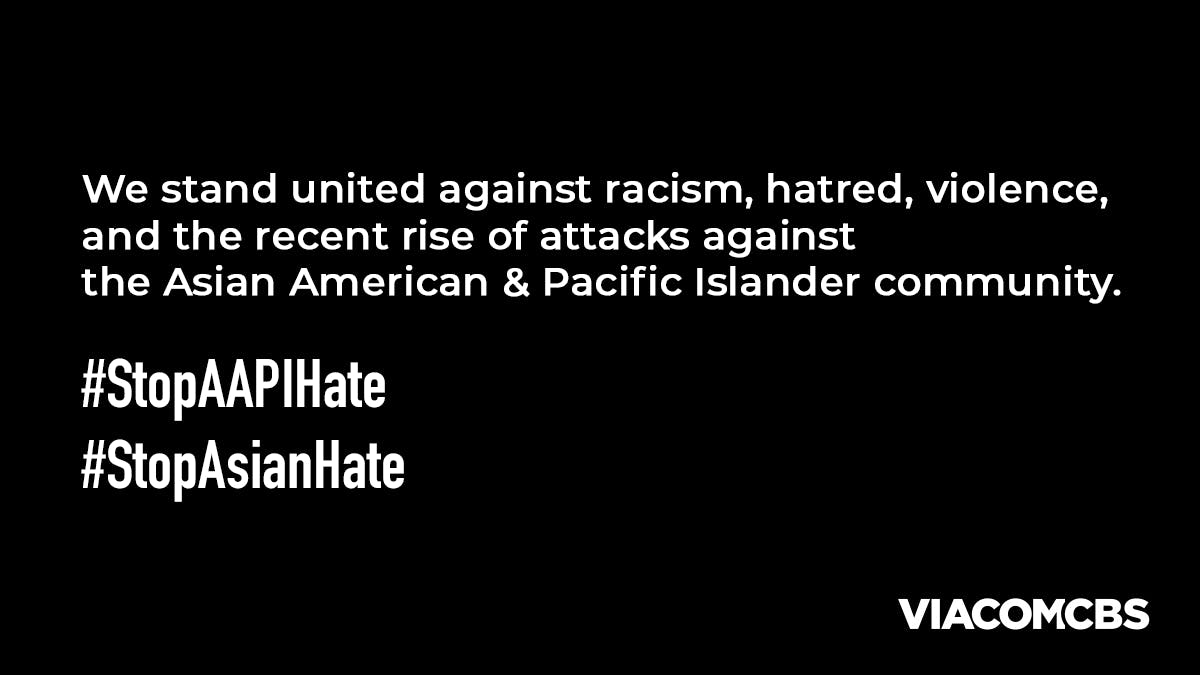
StarTrek.com
George Takei — Hikaru Sulu, Star Trek: The Original Series
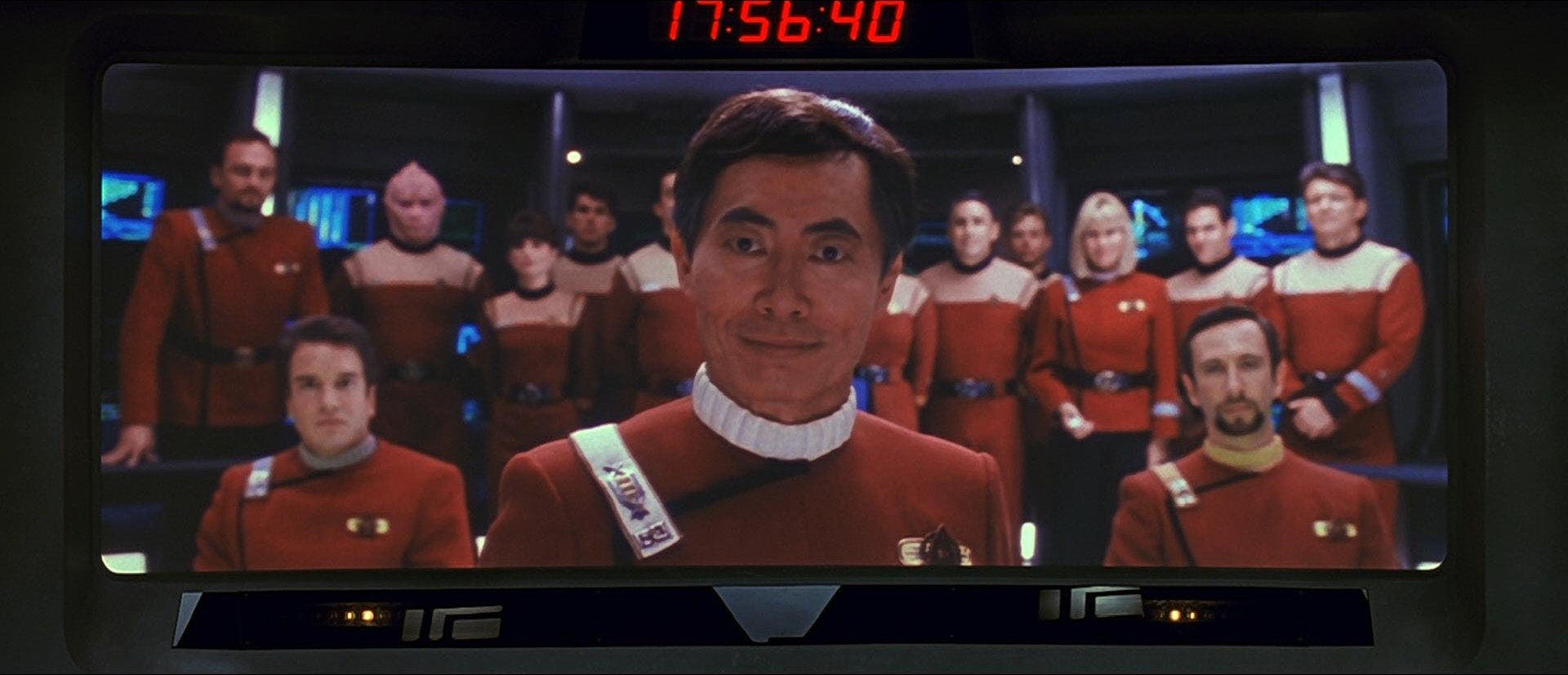
StarTrek.com
“Throughout the history of the U.S. there has been a steady and constant flow of racist hate whether against indigenous people, Africans, Latinos, Muslims, Jews or Asians. At times of xenophobic hysteria against a particular group, hate incidents against that group explodes. With the current Coronavirus pandemic having originated in China and a racist president who incessantly referred to it as the “China virus” or “Wuhan virus” or “Kung Flu,” incidents of Asian hate attacks have escalated alarmingly. Americans are of all races and cultures. We all, as an individual, as a people and as a nation must engage in the struggle to quash this ugly and ultimately self-destructive compulsion to hate.” — George Takei
Garrett Wang — Harry Kim, Star Trek: Voyager
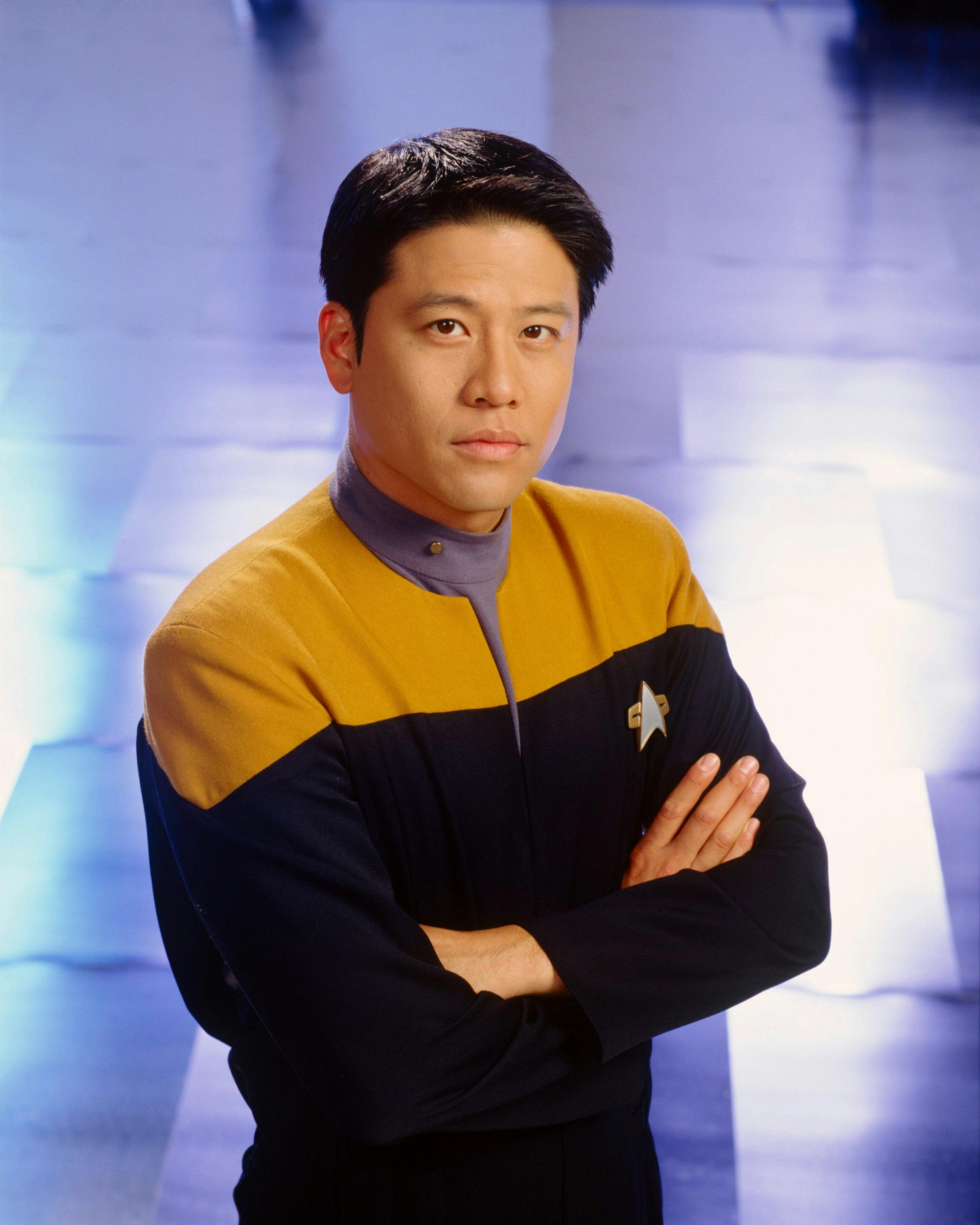
StarTrek.com
“To All the Trek Fans Worldwide,
"One of the wonderful things that all fans of Trek have embraced is the Star Trek concept of IDIC: Infinite Diversity in Infinite Combinations. The current alarming and growing trend of verbal and physical attacks against Asian Americans, due to the origin of COVID-19, goes against the core of this vital concept. This racist behavior must not be tolerated. Whether you happen to be at work or anywhere in public, if you observe someone being the target of racist speech or behavior, please summon the courage, love and conviction that is necessary to give you the power to assist the victimized. Help the offender understand the definition of human decency by reminding them of the Golden Rule: treat others as you would like others to treat you.” — Garrett Wang
Patti Yasutake — Alyssa Ogawa, Star Trek: The Next Generation
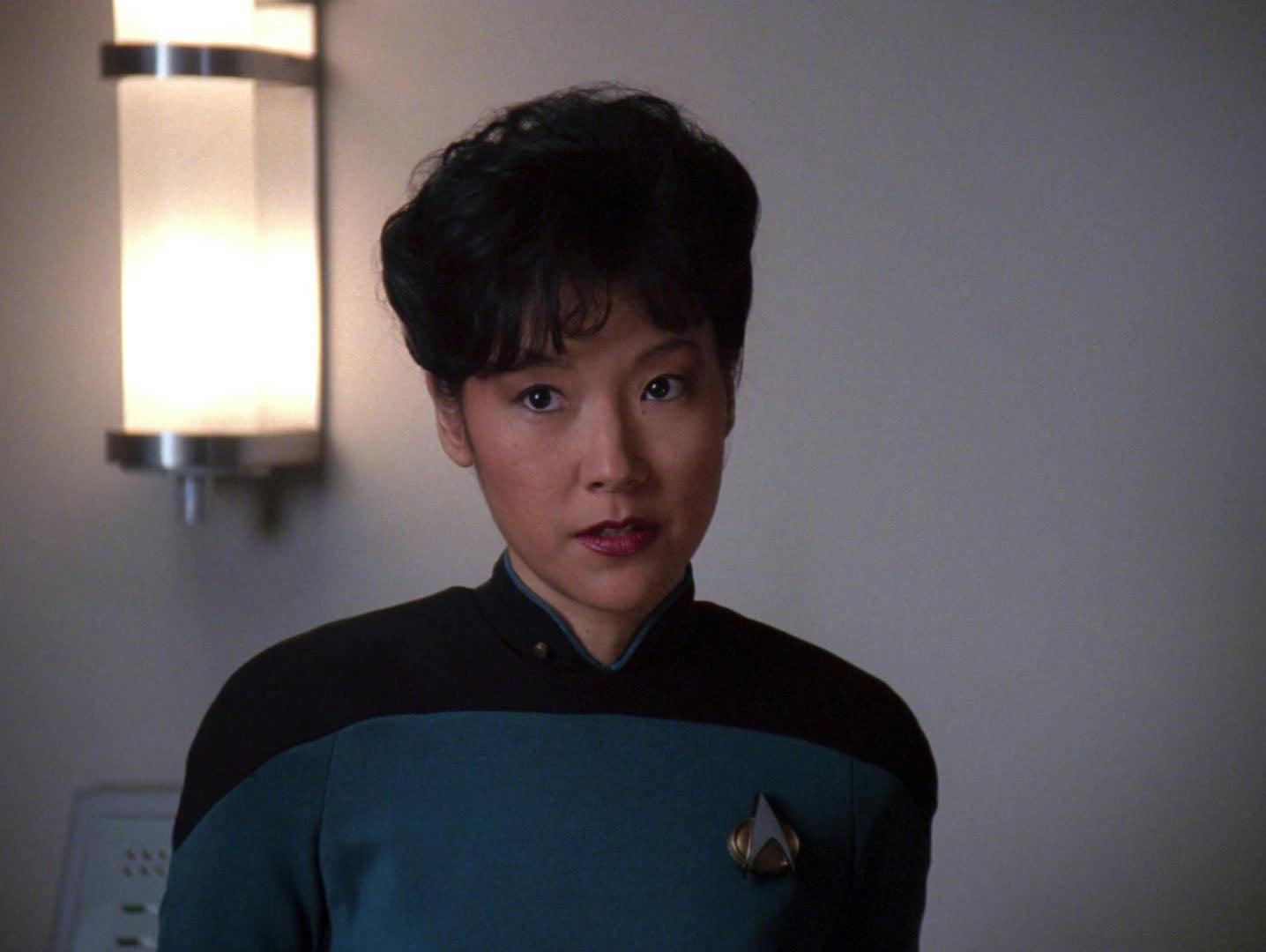
StarTrek.com
“Violence against Asian-Americans is in the news this week. Not because it’s new, but because it's become so outrageously rampant, explicit and overt. But how outrageous is it outside our community? Is there outrage? Or are Asian-Americans a small 'invisible' group that just gets an unknowing shrug or maybe head shake? Please look up the recent news coverage for some insight. Please check out the George Takei and Daniel Dae Kim interviews on MSNBC and CNN.
"At the very least, can we all take an active stand against senseless violence? 'The use of physical force so as to injure, abuse, damage, or destroy,' 'causing or intending to cause harm - physical, psychological, or both.' And yes, verbal attack is an act of violence. Whether violence is inflicted on you or me, isn’t it absolutely wrong? Has there been so much violence overall, it’s desensitized outrage and condemnation?
"Last month was horrific violence against our Capitol, before that it was and still is BLM, #MeToo, LGBTQ+, Dreamers, Muslims, Jews, immigrants, homeless, refugee children, school children – any of us can face the threat of violence for race, gender, religion, politics, sex, disability, job, culture, age, weight, money, no money, science - it senselessly doesn’t stop. “Is this America!?!” Yes - when we look the other way and allow it. No - not when we speak up together and strongly stand against such violence. We are all messy creatures of bias, prejudices, bigotry, and fueled with complicated emotions and psychology that can subjugate our rationality, empathy, and humanity – but it must simply never be okay to cross the line into violence. Physical or verbal. If collectively and unequivocally we can stand up against violence towards any of us, then even if I don’t know you and you don’t know me or even see me, we are standing up for each other, for what’s right for all of us.
"February 19th commemorated the anniversary of a different day of "infamy" - the signing of Executive Order 9066. 'There are unmistakable parallels between today's climate and the racial prejudice that was complicit in the forced removal and incarceration of over 120,000 people of Japanese ancestry... If we are not vigilant in remembering, we risk forgetting the lessons of history, and allowing tragedy and injustice to be repeated.' -JANM (Japanese American National Museum)
"So let's learn from past wrongs, stand up for today's rights, and look forward to possibilities - to which I say, 'Thank You, Star Trek fans' - for sustaining a connection to a hopeful and expansive future universe that celebrates rising above our shortcomings and discovering our greater selves."In the meantime, apathy towards injustice is complicity. Be outraged.” — Patti Yasutake
Dorren Lee — Lieutenant Teemo, Star Trek: Discovery
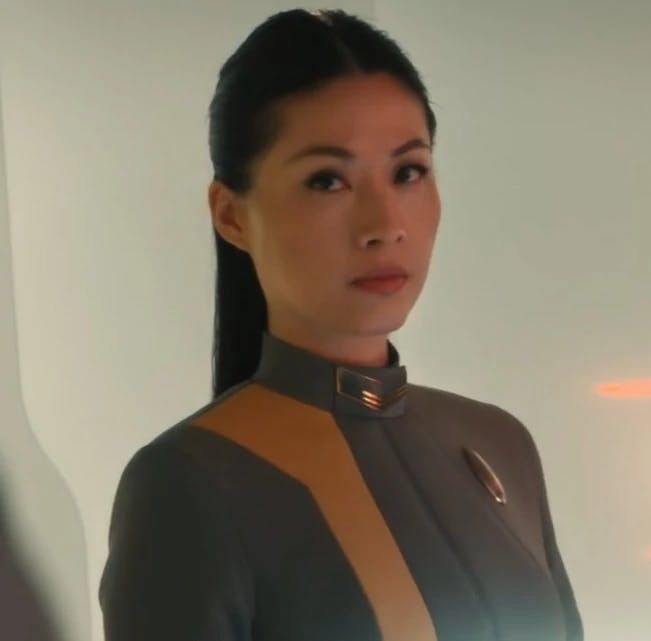
StarTrek.com
“I am extremely heartbroken by the violence against Asian-Americans and especially the elderly. Please, if you see or hear anything, speak out against violence and hatred. Your voice makes a difference! We need everyone’s voice to stop hatred and ignorance. We stand for a world that is inclusive of all; we have the power to make that happen.” — Dorren Lee
Clyde Kusatsu — “Vice Admiral Nakamura,” Star Trek: The Next Generation
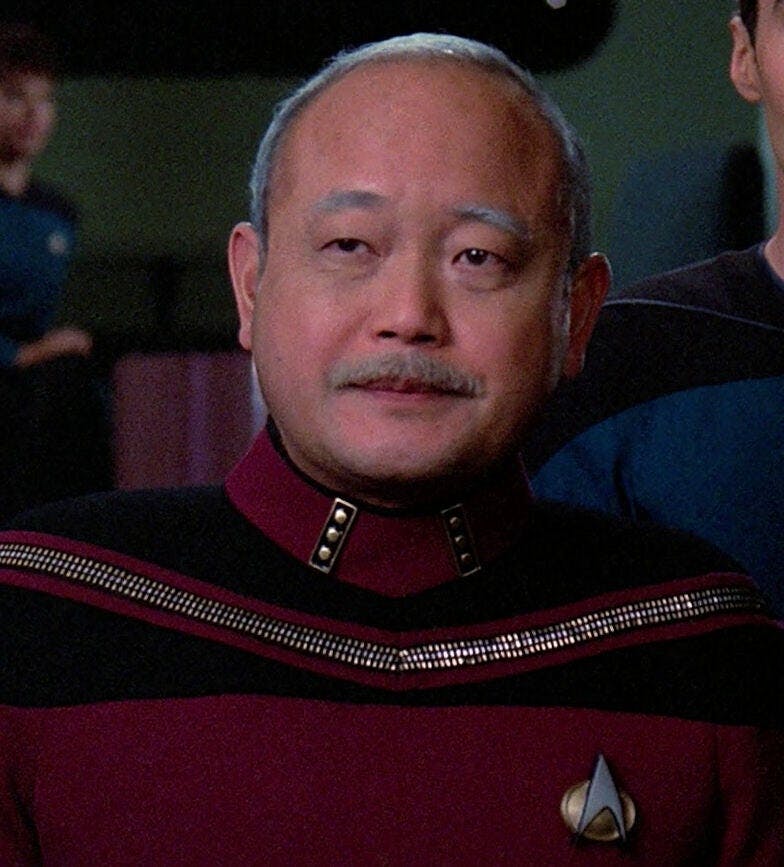
StarTrek.com
“'The Others' have always been the favorable targets for rage and xenophobia to blame someone... for centuries from the Chinese in [America in] the 1800s, then the Japanese [during] WW2, to Detroit in the 1970s with Vincent Chin murdered for the rise in Japanese Auto Manufacturing, through now with the COVID and blame. Star Trek was the first series in the 1960s to paint a picture of what the Universe can look like [with] part of a crew in it together. I was honored to be given the role of Vice Admiral Nakamura who was a peer to Picard on TNG. That creative act [alone] broke so many boundaries of images of how people are viewed and judged! We continue to battle the dark forces by showing the diversity of our country and the world on the screen for all to see and model #TheMoreYouSeeTheMoreYouLearn. We must continue to engage and fight the dark forces, because there is no such thing as Futility in Resistance!” — Clyde Kusatsu
Brian Tochi — “Ray Tsing Tao,” Star Trek: The Original Series; “Ensign Lin,” Star Trek: The Next Generation
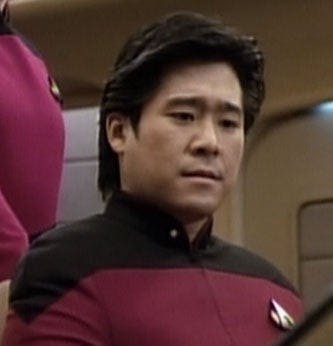
StarTrek.com
“It’s so terrible to even hear about the rise in violence. What can anyone say, but how sad a state we are in for this to happen to anyone. Very simply: love one another. Love your fellow human beings, we’re all valuable. That’s what it’s all about, I think. If we could focus on loving one another, the world would certainly be a much better place. If we focus on love, that love can go out from our planet and reach every galaxy in the universe.” — Brian Tochi
For resources on stopping anti-AAPI violence and discrimination, visit Stop AAPI Hate. For daily lessons on fighting systemic racism, subscribe to Anti-Racism Daily.
Mike Chen (he/hiim) is a science fiction writer who also writes about his favorite science fiction. His latest novel WE COULD BE HEROES (January 26, 2021 - HarperCollins) is about the unlikely friendship between a reluctant supervillain and a mediocre superhero. In other words, it’s perfect holodeck fodder for Bashir and Garak. Follow him on Twitter @mikechenwriter.
Jay Stobie (he/him) is a freelance writer who has contributed articles to the official Star Trek website and Star Trek Magazine, as well as to Star Wars Insider and the official Star Wars website. Jay also serves as a part-time assistant and consultant advising many actors and creatives who work on his favorite sci-fi shows and films. He can be found on Twitter and Instagram at @StobiesGalaxy.

